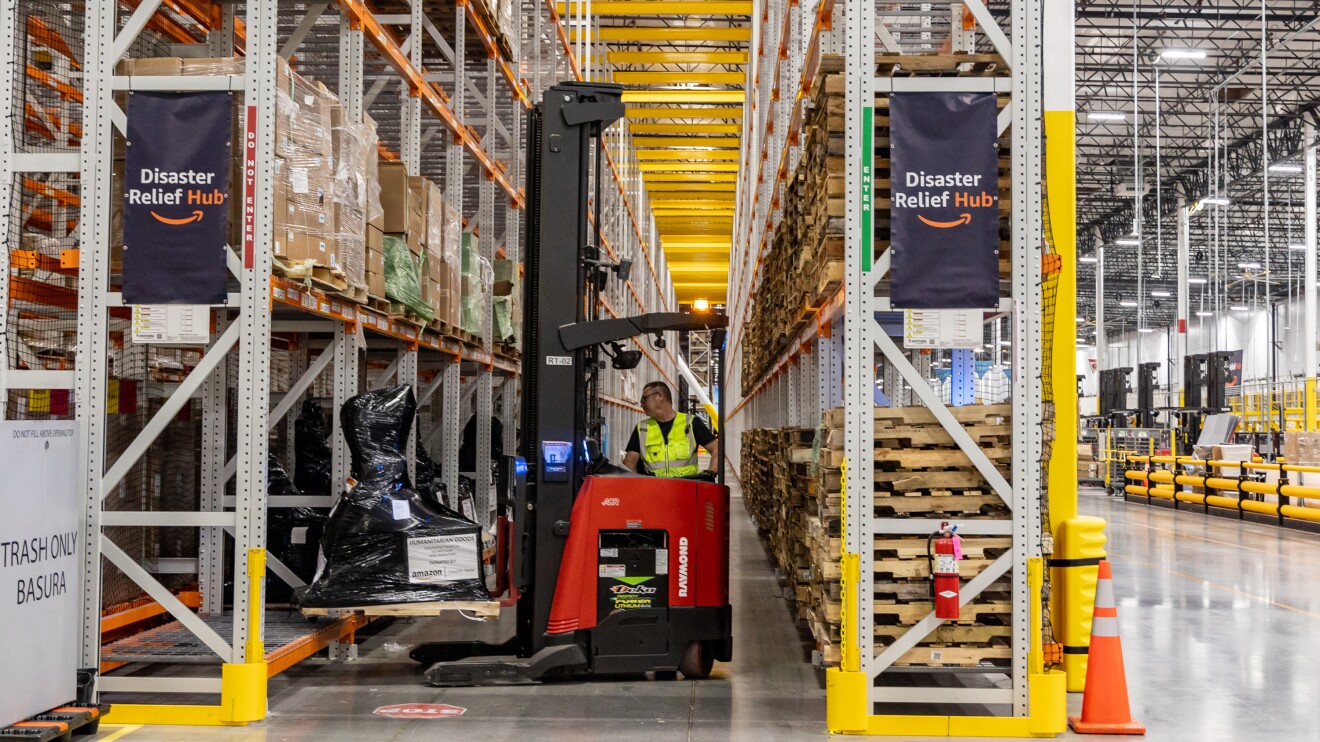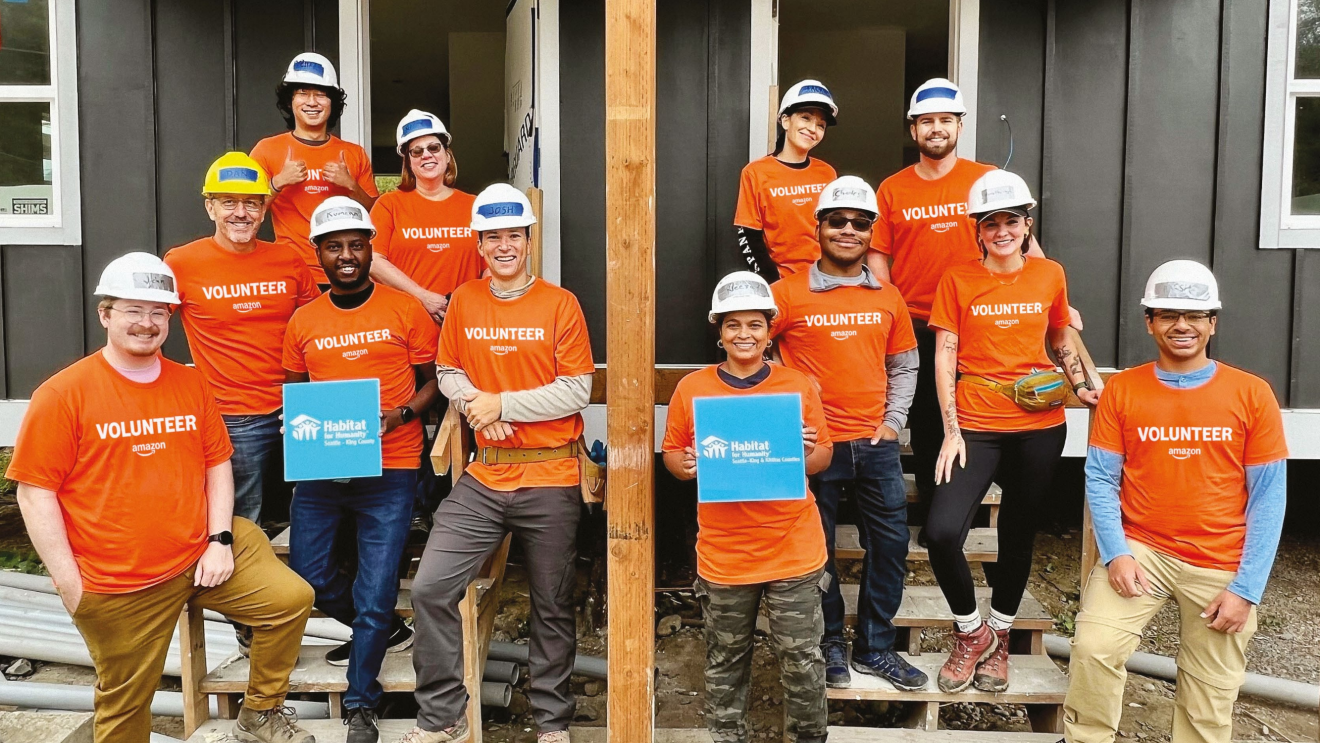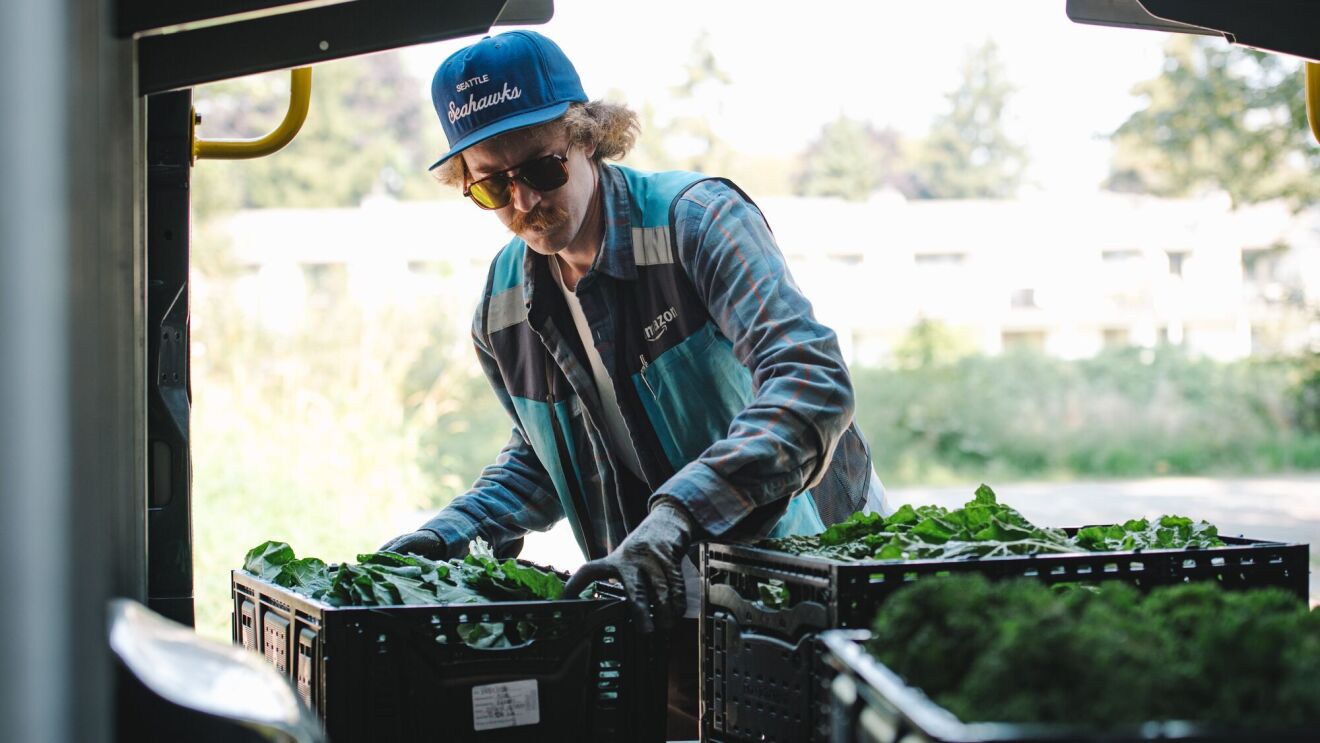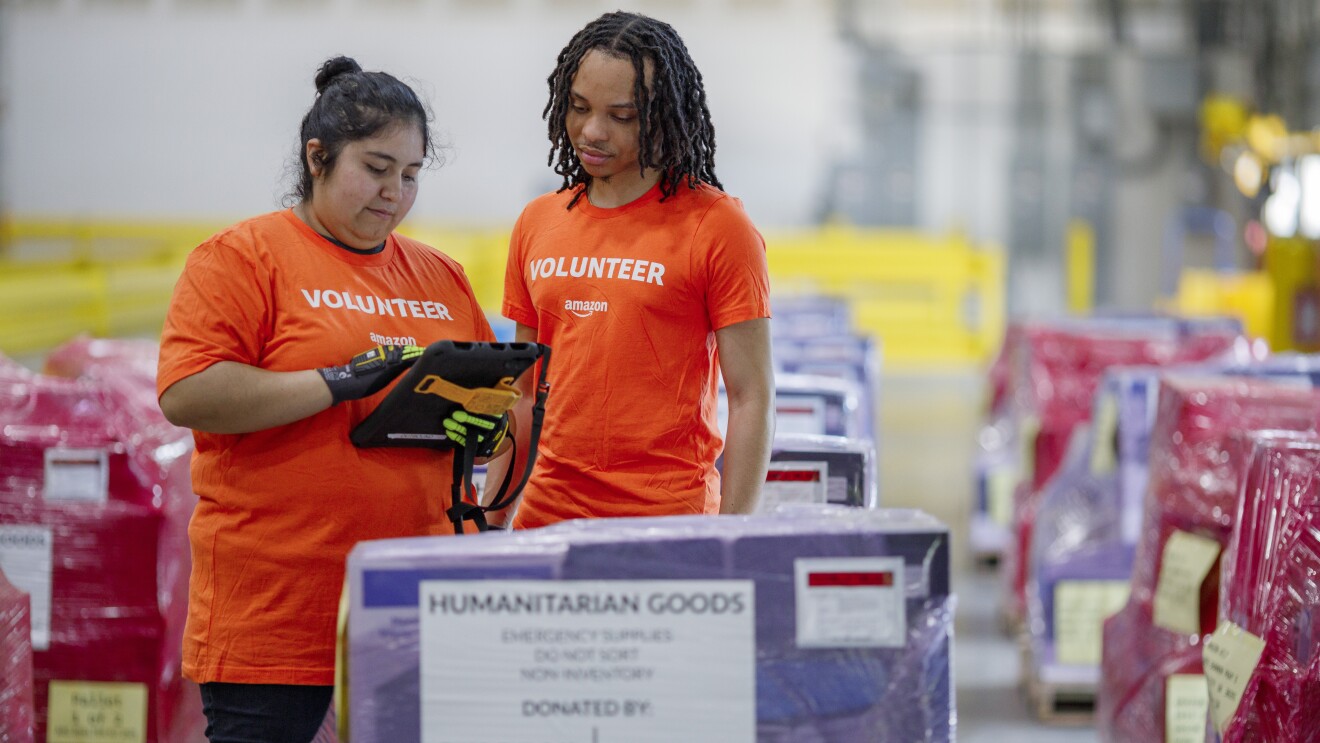Indigenous youth face significant barriers to accessing computer science (CS) instruction and opportunities in schools on Native American reservations. In turn, the lack of a robust CS curriculum for K-12 students has created a concerning educational disparity.
Amazon Future Engineer, Amazon’s global philanthropic computer science education program, recognizes the need to support Indigenous leaders in creating solutions that work for Indigenous communities. Through the program, Amazon has announced a commitment of $2.25 million to support Indigitize Computer Science (or Indigitize), a new initiative created in partnership with The One Gen Fund to support Indigenous schools and school districts in accessing culturally responsive CS curriculums. Indigitize launched in New Mexico and will roll out to Arizona, South Dakota, and other areas across the U.S. to reach an initial 10,000 Native American students by 2025.
Indigitize aims to increase participation and build momentum for long-term CS education programs for Indigenous students and teachers. On top of providing access to computer science curriculum specially developed for indigenous communities, this initiative will also offer summer, after-school, and online learning experiences for students. Additionally, the program will create ways for Indigenous youth to teach CS to other Indigenous students and build a network of partners that address key barriers to access CS education. In doing so, Indigitize will connect Indigenous youth to the careers of the future in meaningful ways, and it will equip Indigenous students to create solutions for their communities.
Amazon Future Engineer formally announced its commitment to the initiative at CSEdCon, Code.org’s annual CS education conference. About 350 global education leaders and 12 state-level education superintendents attended the conference supporting the “CS for All” movement. Indigitize aligns with the national initiative to make high-quality computer science an integral part of the educational experience for all K-12 students and teachers.
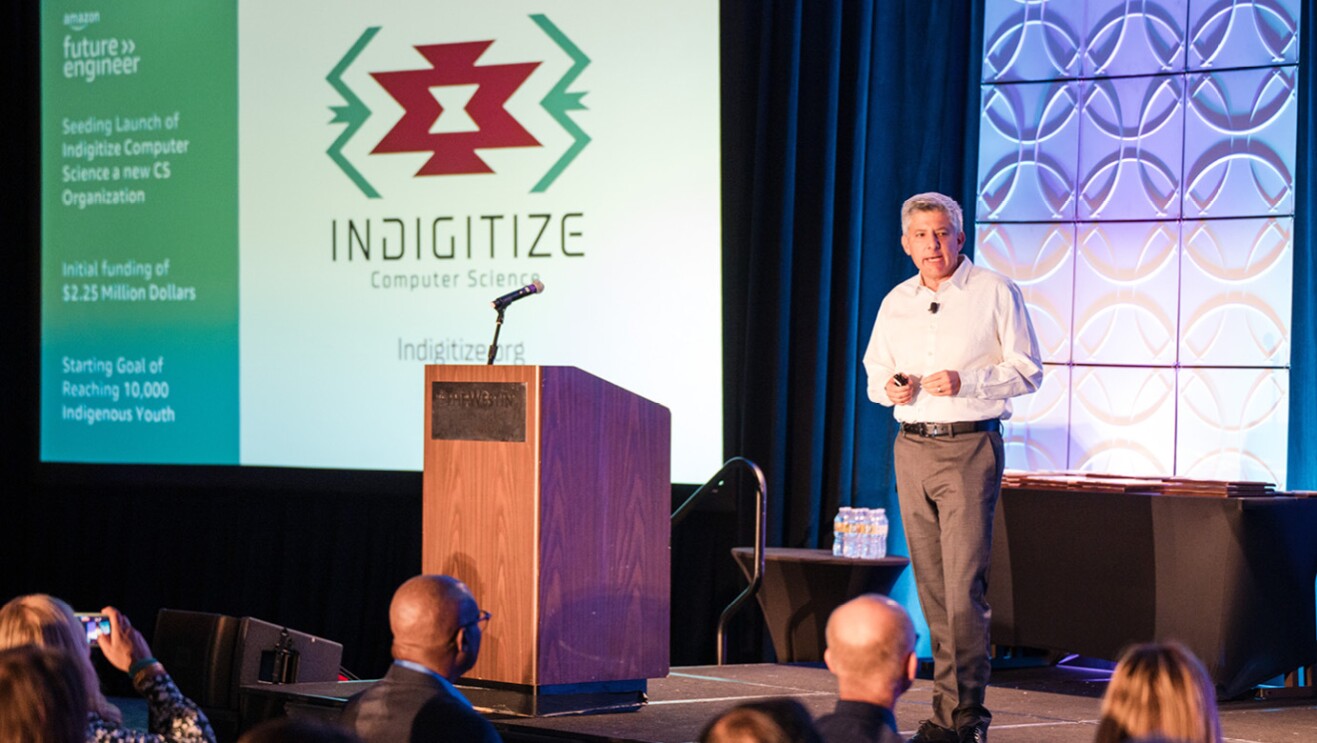 Victor Reinoso, global director of Amazon's philanthropic education initiatives, announced Amazon's $2.25 million commitment to Indigitize at CSEdCon, Code.org’s annual CS education conference.
Victor Reinoso, global director of Amazon's philanthropic education initiatives, announced Amazon's $2.25 million commitment to Indigitize at CSEdCon, Code.org’s annual CS education conference.“There is no CS for All without prioritizing communities that face systemic barriers to computer science access and designing impactful solutions that make a difference and address the needs of a rapidly changing world,” said Victor Reinoso, global director of Amazon’s philanthropic education initiatives.
Computer science is the fastest-growing profession within the fields of science, technology, engineering, and math (STEM). The U.S. Bureau of Labor Statistics forecasts that job opportunities for computer science workers will grow 15% between 2021 and 2031, yet only 8% of STEM graduates earn a computer science degree, and only a small percentage of those come from underserved and historically underrepresented communities.
Historically, schools have not been set up for the benefit of Indigenous youth and communities. According to Code.org's State of CS Report, only 20% of high schools on reservations offer foundational computer science coursework. Additionally, only 59% of Native American and Native Alaskan students attend a school that offers computer science education. Access to CS and related technology can be central to overcoming some of the challenges Indigenous communities face, including language preservation, climate change, water conservation, and economic development.
“Native American students are among the most underrepresented in computer science,” said Code.org Founder and CEO Hadi Partovi. “Amazon’s significant investment focused on reaching indigenous students will play a pivotal role in increasing equitable access and participation.”
Kara Bobroff leads The One Gen Fund, where she focuses on strengthening national efforts in Indigenous education. As a Dine’/Lakota woman and citizen of the Navajo Nation, Bobroff has dedicated her career to increasing equitable outcomes for Indigenous students and communities that face the intersection of economic inequities, a lack of technology resources in rural areas, and the legacy of an education system that was not established to meet community needs.
"We've been thrilled by what students have created when provided computer science learning opportunities, and we anticipate more positive outcomes when every Indigenous student has access to CS education,” said Bobroff. “We’re grateful for Amazon's support as a partner that understands the need for equity through championing Indigenous-led efforts.”
In collaboration with Amazon and other tech partners, Indigitize will connect students with a diverse group of mentors and career exploration opportunities that help illuminate the vast array of careers available within the tech sector—from software development to marketing. Tyla Kanteena, a teacher with the Native American Community Academy’s Inspired Schools Network, recently taught computer science at Six Directions Indigenous School, leveraging Amazon Future Engineer resources.
"As educators of indigenous youth, it is important that we open doors for our students that can provide them the tools, knowledge, experience, and wisdom to eventually lead our Indigenous communities in the future,” said Kanteena. “Computer science is a new pathway that our students can explore to help serve our communities. By equipping them with foundational CS skills, we can better prepare them for leadership and success."
 Student practicing Indigenous coding, highlighting the intersection of coding and Dine' language.
Student practicing Indigenous coding, highlighting the intersection of coding and Dine' language.Amazon Future Engineer is part of Amazon's commitment to STEM and computer science education. A childhood-to-career education program, Amazon Future Engineer gives elementary, middle, and high school students—from diverse communities around the globe—access to computer science education. Through this education, students can explore project-based learning initiatives, using code to make music, program robots, and solve problems. Funding from Amazon Future Engineer also provides teachers access to inclusive computer science curriculum and professional development opportunities. In addition to its annual Teacher of the Year program, Amazon Future Engineer awards hundreds of students each year with four-year, $40,000 scholarships and paid internships at Amazon. The program is currently available in the U.S., the UK, France, Canada, India, and Germany.
Top photo by Teach For America/Brian Leddy.
Trending news and stories



